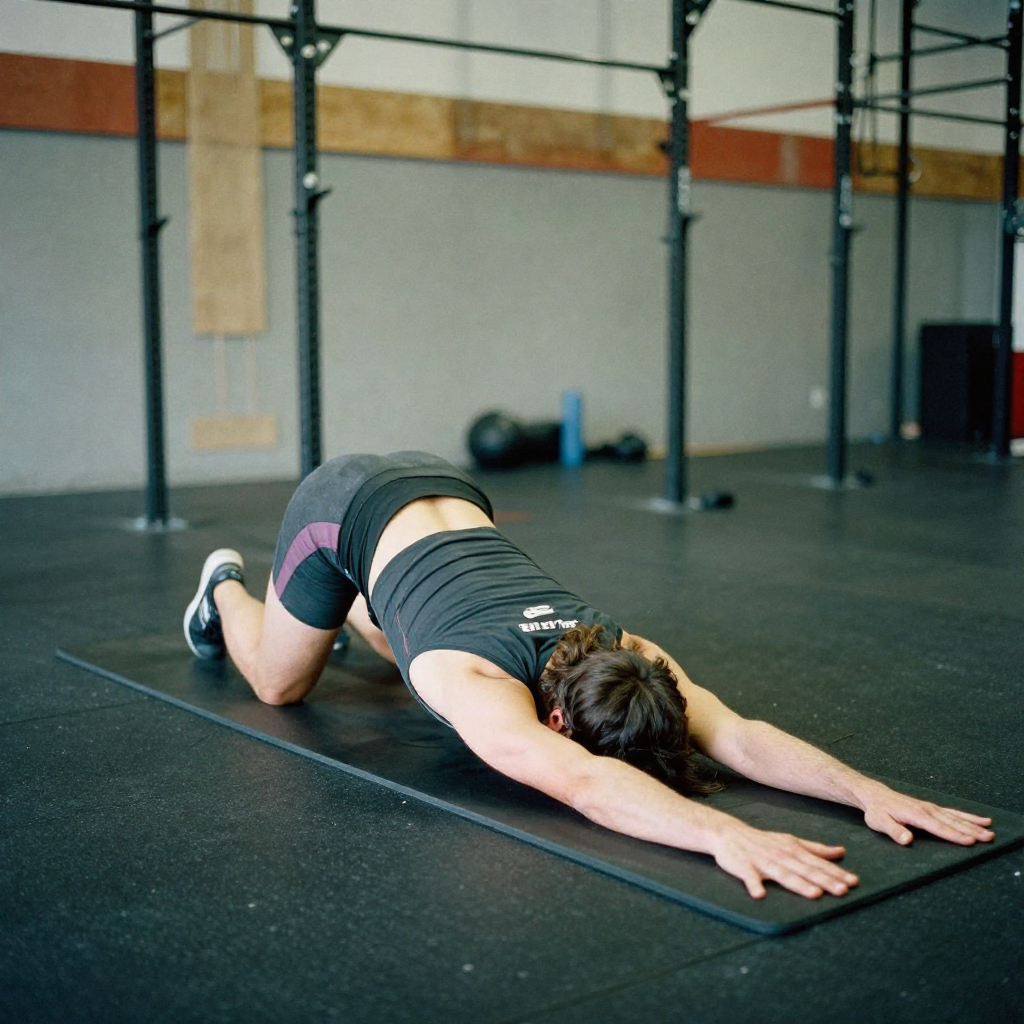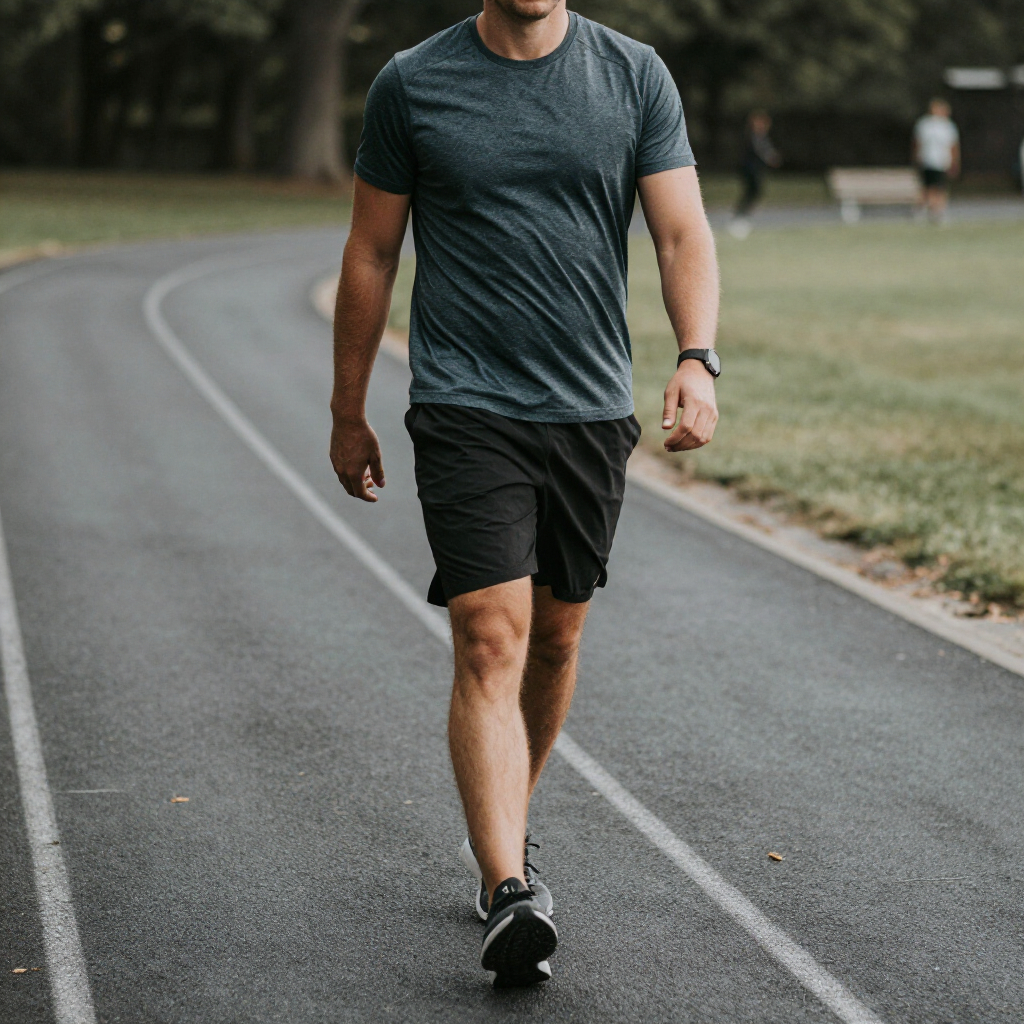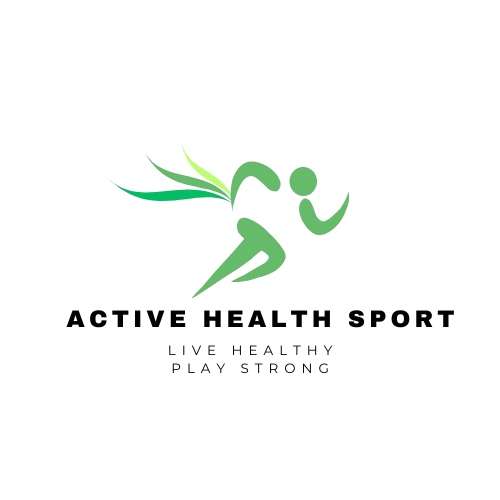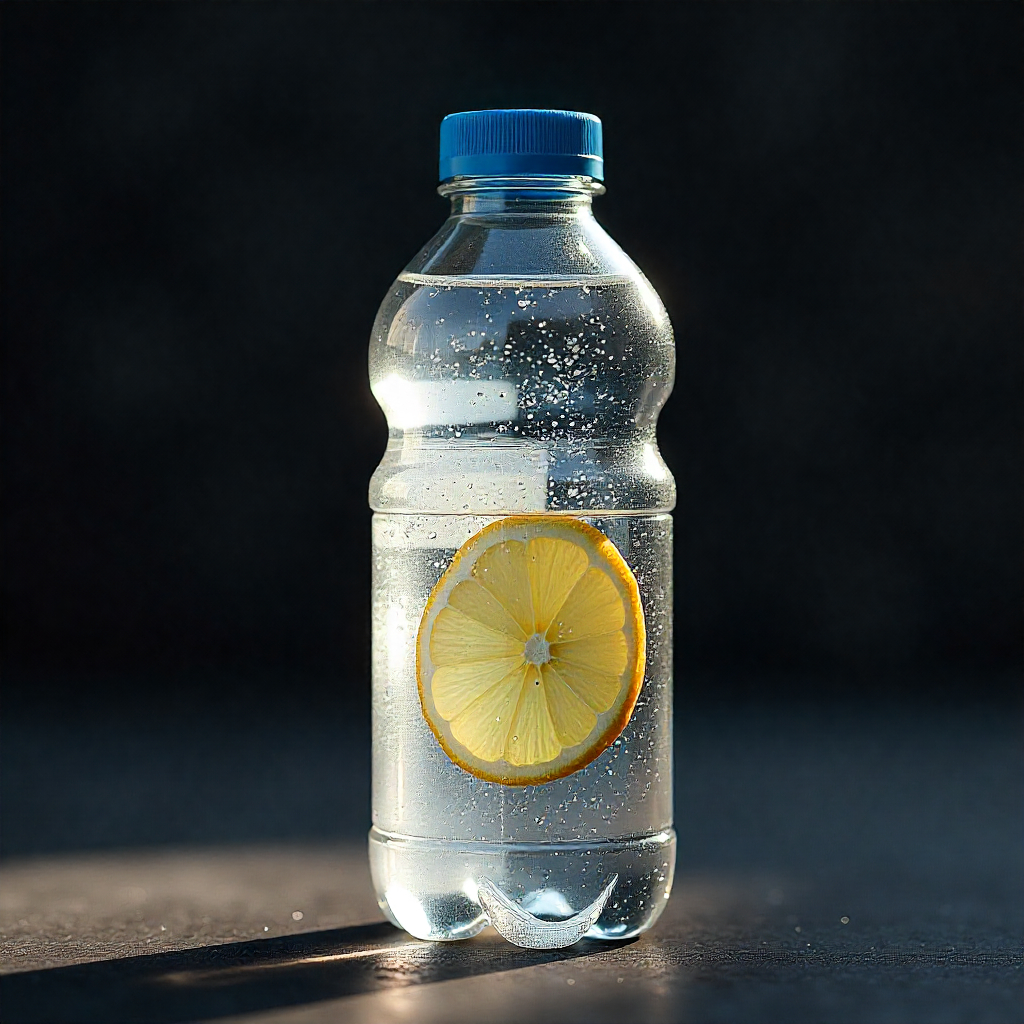The Missing Link in Modern Fitness
Ask most people how to recover faster, and you’ll hear familiar answers: protein, stretching, and sleep.
But there’s one element silently shaping every part of your recovery, focus, and energy: water.
Hydration isn’t glamorous, yet it’s the foundation of every biological process, from muscle repair to neural signaling.
Still, over 70% of active adults are chronically dehydrated, according to a 2024 International Journal of Sports Science & Medicine review.
We live in an age of smart watches, supplements, and recovery tech, but we often forget the most basic performance enhancer of all: fluid balance.
In this blog, we’ll break down how hydration impacts both your muscles and your mind, with cutting-edge science, case studies, and practical strategies for real-life fitness enthusiasts, athletes, and desk workers alike.
Why Hydration Matters More Than You Think
Hydration isn’t just about drinking water. It’s about maintaining the right balance between fluids and electrolytes (sodium, potassium, magnesium) to support cellular performance.
When the body is dehydrated by even 2% of total fluid volume, several changes occur:
- Blood thickens, reducing oxygen delivery
- Muscles lose contractile efficiency
- Brain function slows, reaction time, focus, and memory decline
- Core temperature rises, accelerating fatigue
According to a 2023 European Hydration Institute study, mild dehydration can cut muscle strength by 10-15% and reduce mental focus by up to 25%.
That’s not fatigue, that’s physiology.
Hydration and Muscle Recovery: The Biological Connection
1. Muscle Repair Depends on Cellular Hydration
After exercise, micro-tears in muscle fibers trigger a repair process. For that to happen efficiently, cells need fluid to transport nutrients, amino acids, and hormones into damaged tissue.
When dehydrated:
- Nutrient transport slows
- Protein synthesis declines
- Inflammation lingers longer
A 2024 Journal of Applied Physiology trial found that hydrated athletes recovered 32% faster from strength workouts than those who were even slightly dehydrated.
2. Water Flushes Out Metabolic Waste
During exercise, your muscles build up lactate, urea, and ammonia, byproducts of metabolism.
Water helps flush them out through sweat and urine. Without enough hydration, these compounds linger, prolonging soreness and stiffness.
Pro Tip: If your post-workout soreness lasts longer than 48 hours, check your hydration, not just your training volume.
3. Joint Lubrication and Mobility
Synovial fluid, the “oil” of your joints, is made primarily of water.
Insufficient hydration thickens this fluid, making it less smooth and increasing friction in the knees, hips, and shoulders.
That’s why people often feel tight or creaky after travel, dehydration, or hot weather, it’s not age, it’s fluid loss.
4. Hydration Reduces Cortisol (the Stress Hormone)
Cortisol levels spike during dehydration, triggering muscle breakdown and fatigue.
Rehydration helps rebalance the cortisol-to-testosterone ratio, supporting muscle recovery and overall resilience.
A 2023 Harvard Medical School review noted that properly hydrated subjects had lower post-exercise cortisol and improved muscle glycogen replenishment.
Also Read the Latest: Hydration and Recovery: Is this the New Fitness Power Duo?
The Brain-Body Connection: How Hydration Sharpens Focus
Your brain is 75% water, and even mild dehydration disrupts its ability to transmit electrical signals effectively.
That’s why dehydration doesn’t just make you tired, it makes you foggy, impulsive, and less coordinated.
1. Cognitive Performance
A 2025 Frontiers in Human Neuroscience study showed that adults who lost 2% body water had:
- 14% slower decision-making
- 12% reduction in memory recall
- 17% increase in perceived effort during physical and mental tasks
Simply put, dehydration makes your brain work harder for the same output.
2. Mood and Motivation
Dehydration triggers the same neural pathways as mild stress. The hypothalamus, which regulates both thirst and mood, interprets low fluid levels as danger, increasing irritability and fatigue.
That’s why afternoon “burnout” often improves with water and electrolytes before caffeine.
3. Hydration and Sleep
Poor hydration affects your circadian rhythm.
Low fluid intake elevates heart rate and core temperature, both of which interfere with deep sleep and recovery hormones like growth hormone (GH) and melatonin.
Researchers at the Sleep & Hydration Institute (2024) found that those drinking adequate water (2.5–3L/day) spent 28 minutes longer in deep sleep per night compared to low-hydration groups.
Real-Life Case Studies💪: Hydration That Transformed Performance
Case 1: The Overworked Trainer Who Finally Recovered Right
Profile: 38-year-old personal trainer, managing 8–10 clients per day, often with back-to-back sessions.
Problem: Despite being fit and active, he struggled with chronic fatigue, lingering muscle soreness, and restless nights. Midway through each day, his energy plummeted, forcing him to rely on caffeine just to stay focused.
Discovery: After tracking his intake for a week, he realized he was consuming just 1.2 liters of water daily, even while sweating through 4-5 hours of workouts. His body was running dry, literally.
Intervention: With guidance from The National Academy of Sports Medicine (NASM), he gradually increased his intake to 3.5 liters per day, adding electrolytes post-workout for better recovery and muscle rehydration.
Result (After 6 Weeks):
- Muscle soreness dropped by nearly 60%
- Reported deeper, uninterrupted sleep
- Sustained better client engagement throughout the day
“I realized I wasn’t overtraining, I was under-hydrating. Once I fixed that, my energy completely changed,” he shared.
Also Read: Daily Water Intake: What’s the Right Amount for You?
Case 2: The Corporate Marathoner Who Beat Mid-Run Fatigue
Profile: 45-year-old marketing director and father of two, training for his first full marathon while juggling long office hours.
Problem: He faced mid-run fatigue, leg cramps, and frequent post-run headaches, even after proper nutrition and rest.
Strategy: After consulting hydration guidelines from Runner’s World, he switched from plain water to a sodium-balanced hydration plan, roughly 600mg of sodium per liter of fluid.
Outcome (After 3 Months):
- No more mid-run cramps or “energy crashes”
- Recovery time between runs improved
- Achieved a personal best marathon time of 3:58
“Once I understood the science of electrolytes, it felt like I unlocked a new gear,” he said proudly.
Case 3: The Remote Worker Reboot
Profile: 41-year-old software engineer working from home full-time.
Problem: Daily brain fog, fatigue, and frequent headaches during virtual meetings. He blamed screen time, but hydration was the missing link.
Adjustment: Following insights from Harvard Health, he began his day with 500ml of water mixed with electrolytes, followed by another 250ml every hour throughout the workday.
Result:
- Noticed sharper focus and cognitive clarity
- Experienced fewer headaches and crashes
- Reported consistent mood and energy during long coding sessions
“I didn’t need more coffee, I needed more water. My focus and patience are now on another level.”
Case 4: The Fitness Coach Who Rebuilt Her Routine – Sarah Mitchell (FlowFit Studio)
Profile: Sarah Mitchell, 36-year-old owner of FlowFit Studio, a group fitness and Pilates center in Austin, Texas.
Problem: After expanding her studio and coaching up to 5 classes daily, Sarah started feeling severe muscle cramps and dizziness, especially after afternoon sessions. She believed she was burning out.
Action Taken: She consulted a nutritionist and integrated insights from the American Council on Exercise (ACE) about hydration for endurance instructors. She started tracking her fluid loss via sweat rate and began replenishing electrolytes during and after classes.
Outcome (After 8 Weeks):
- Zero post-class dizziness and improved recovery between sessions
- Enhanced muscle tone and less soreness
- Reported clearer skin and better mood balance
“Hydration wasn’t just about water, it was about giving my body the minerals it was crying out for,” Sarah said.
Also Read the Latest: Why More People Are Switching to Alkaline Water in 2025
Have a Story Like This? We’d Love to Hear From You!
If you’ve experienced your own transformation through hydration, recovery, or mobility, whether big or small, we want to feature you!
Share your journey with the Active Health Sport team and inspire others to live stronger, healthier, and more balanced lives. Simply reach out through our Contact Page or tag us on social media with #ActiveHydrationJourney. Your story could help someone else start theirs!

The Hidden Dehydrators: Why You’re Losing Water Without Realizing It
- Caffeine & Alcohol: Both act as mild diuretics, they increase urine output.
- Air Conditioning & Heating: Indoor environments reduce humidity and increase insensible water loss through skin and breath.
- High-Protein Diets: Protein metabolism requires extra water to process nitrogen waste.
- Stress: Elevates cortisol and metabolic rate, subtly increasing dehydration.
- Screen Time: Long focus periods reduce natural thirst cues, and you forget to drink.
The Science of Electrolytes: When Water Isn’t Enough
Hydration is not just about water, it’s about fluid balance.
Without electrolytes, water can’t be properly absorbed or retained inside muscle cells.
| Electrolyte | Primary Function | Sources |
| Sodium (Na⁺) | Retains water in tissues, regulates blood pressure | Sea salt, broth, electrolytes |
| Potassium (K⁺) | Supports muscle contraction, heart rhythm | Bananas, avocados, coconut water |
| Magnesium (Mg²⁺) | Reduces cramping, aids recovery | Nuts, seeds, dark chocolate |
| Calcium (Ca²⁺) | Muscle signaling, bone health | Dairy, leafy greens |
Hydration Strategies for Real Life
1. The “1% Rule”
Drink 1% of your body weight in water daily.
For a 70kg adult → 0.7L x 3 = ~2.1–2.5L per day (more if you exercise).
2. Pre-Hydrate Before Workouts
Drink 500ml of water with electrolytes 60–90 minutes before exercise.
This improves endurance and reduces heat stress.
3. The Recovery Window
Post-exercise, aim for 750ml–1L of fluids with electrolytes for every hour of training.
4. Monitor Urine Color
Simple but effective, pale yellow = hydrated; dark = dehydrated.
5. Add Electrolytes for Long Workdays
If you work in air-conditioned environments or under stress, add an electrolyte packet mid-day. It helps sustain mental clarity.
Hydration Myths vs Facts
| Myth | Reality |
| “You only need water when thirsty.” | Thirst lags behind actual dehydration by 30–60 minutes. |
| “More water = better.” | Overhydration dilutes electrolytes and can cause fatigue. |
| “Caffeine dehydrates you completely.” | Moderate coffee (1–2 cups) is neutral when balanced with water. |
| “Hydration is only for athletes.” | Desk workers lose 2L+ daily through respiration and metabolism. |
| “Cold water burns more calories.” | Negligible, focus on consistency, not temperature. |
Also Read: Hydration Myths vs. Facts | What Americans Should Know
Hydration for Mental Focus at Work
1. Morning Reboot Routine
Start your day with:
- 500ml water
- A pinch of salt or an electrolyte packet
- Light movement (stretch or walk)
This activates blood flow, oxygen delivery, and brain alertness before caffeine.
2. Hydration + Pomodoro
Every 45 minutes of work → take 5 minutes to drink 200ml of water and move your joints.
This prevents mental burnout and physical stiffness.
3. Water-to-Caffeine Ratio
For every cup of coffee, add 250ml of water to stay balanced.
4. Brain Fog Fix
If focus drops mid-day, don’t reach for sugar; drink water first.
Brain dehydration mimics fatigue more than energy deficiency.
Hydration and Sleep Recovery
Water intake influences how well you sleep and how your body recovers overnight.
Key tips:
- Hydrate evenly during the day (avoid heavy drinking right before bed).
- Add magnesium glycinate at night for muscle relaxation and deep sleep.
- Keep a humidifier if your room is air-conditioned, as dehydration can occur through breath.
A 2025 Sleep Medicine & Recovery Review concluded that consistent hydration throughout the day improved sleep efficiency by 12% and muscle soreness recovery by 29%.
Case Study 4: Hydration for Active Aging (Age 58)
Profile: Elena R., retired teacher turned yoga practitioner.
Issue: Joint stiffness and morning fatigue despite daily stretching.
Intervention: Added 2.5L water/day + morning electrolytes and collagen.
Result: Noticeably improved joint comfort, deeper sleep, and longer yoga holds.
“I used to think my joints were aging. Turns out, they were just dehydrated.”
Practical Daily Hydration Schedule
| Time | Action | Purpose |
| 6:30 AM | 500ml water + electrolytes | Rehydration after sleep |
| 9:00 AM | 300ml with breakfast | Digestive support |
| 11:00 AM | 250ml + light movement | Boost circulation |
| 1:00 PM | 400ml during lunch | Balance digestion |
| 3:30 PM | 300ml + magnesium | Prevent afternoon slump |
| 6:00 PM | 500ml post-workout | Muscle recovery |
| 9:00 PM | 200ml warm water + minerals | Sleep preparation |
Tools and Tech for Smarter Hydration (2025)
- Smart Bottles: Track intake and remind you via Bluetooth.
- Wearable Hydration Sensors: New wrist devices (e.g., HydraBand 2025) analyze sweat electrolyte levels.
- Hydration Apps: Integrate with your activity tracker for personalized fluid targets.
- Portable Electrolyte Pods: Compact packs you can add to any bottle, ideal for travel or work.
Final Thoughts: Water, The Simplest Performance Upgrade
In the race for better fitness, we often chase complexity, supplements, trackers, and recovery tools.
But the truth is simple: your body can’t recover what it can’t hydrate.
Water powers your muscles, sharpens your mind, regulates your hormones, and keeps every system functioning efficiently.
Hydration isn’t a detail, it’s the foundation of strength, recovery, and focus.
So before you upgrade your workout plan or recovery stack, ask yourself:
“Am I truly hydrated enough to perform in the gym and in life?”
Because the answer could be the difference between surviving your days… and thriving through them.
FAQs: Smart Hydration for Performance and Recovery
How much water should I drink daily to get maximum hydration?
Most adults need 2-3 liters of water daily, but the exact amount varies by activity level, temperature, and diet. Increase intake during workouts, hot weather, or when consuming caffeine for optimal hydration.
Can I drink too much water?
Yes. Overhydration without electrolytes can dilute sodium levels, leading to hyponatremia, dizziness, and fatigue. The key is balance, pair your water with electrolyte support during heavy sweating or long exercise sessions.
Are sports drinks necessary for hydration?
Not always. Sports drinks are mainly useful for intense workouts or hot climates where you lose significant sweat. For daily use, low-sugar electrolyte mixes or coconut water work better and support steady hydration.
What are the most common signs of dehydration?
Early signs include fatigue, brain fog, dry mouth, dark urine, and muscle cramps. Long-term dehydration can reduce focus, slow recovery, and increase the risk of joint stiffness and poor performance. Read More Here.
Does hydration improve flexibility and mobility?
Yes. Proper hydration keeps fascia, tendons, and joints lubricated, allowing smoother movement. When tissues are hydrated, muscles respond better to stretching and recovery, reducing tightness and stiffness over time.
When is the best time to hydrate during the day?
Start with 500ml of water in the morning, sip regularly throughout the day, and drink before and after physical activity. Consistent timing helps maintain stable energy and focus all day.
You might also like the following…
- Why Mobility Matters More Than Muscle for CrossFit Progress
 In CrossFit culture, strength numbers often steal the spotlight: heavier deadlifts, faster WOD times, and bigger PRs. While muscle and power are essential, they are not the limiting factor for long-term CrossFit progress.… Read more: Why Mobility Matters More Than Muscle for CrossFit Progress
In CrossFit culture, strength numbers often steal the spotlight: heavier deadlifts, faster WOD times, and bigger PRs. While muscle and power are essential, they are not the limiting factor for long-term CrossFit progress.… Read more: Why Mobility Matters More Than Muscle for CrossFit Progress - Zone-2 Walking for CrossFit Athletes Explained
 In CrossFit, conditioning is often associated with intense, fast-paced WODs, high heart rates, and breathless finishes. While this intensity builds power and short-term fitness, it does not fully support aerobic efficiency, recovery capacity,… Read more: Zone-2 Walking for CrossFit Athletes Explained
In CrossFit, conditioning is often associated with intense, fast-paced WODs, high heart rates, and breathless finishes. While this intensity builds power and short-term fitness, it does not fully support aerobic efficiency, recovery capacity,… Read more: Zone-2 Walking for CrossFit Athletes Explained - How Low-Intensity Walking Restores the Nervous System
 CrossFit is designed to test physical limits. Heavy lifts, fast-paced metabolic conditioning, and complex gymnastic movements demand not only muscular strength but also significant nervous system output. While most athletes focus on muscle… Read more: How Low-Intensity Walking Restores the Nervous System
CrossFit is designed to test physical limits. Heavy lifts, fast-paced metabolic conditioning, and complex gymnastic movements demand not only muscular strength but also significant nervous system output. While most athletes focus on muscle… Read more: How Low-Intensity Walking Restores the Nervous System

Kait Amazra is the founder and lead writer of Active Health Sport. With over 25 years of experience in health, fitness, and wellness education, Kait combines professional expertise with a passion for helping people live stronger, healthier, and more balanced lives.
As a licensed health and fitness professional, Kait has worked alongside industry experts to deliver evidence-based insights on physical activity, nutrition, recovery, and holistic well-being. Through Active Health Sport, Kait’s mission is to make trusted, practical, and science-backed health information accessible to everyone, from beginners building new habits to athletes seeking peak performance.

